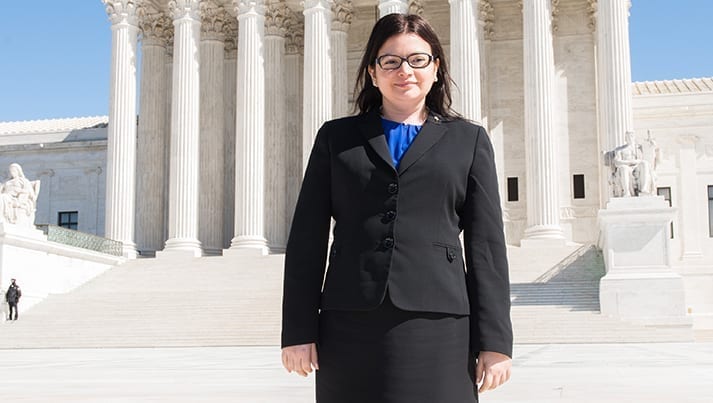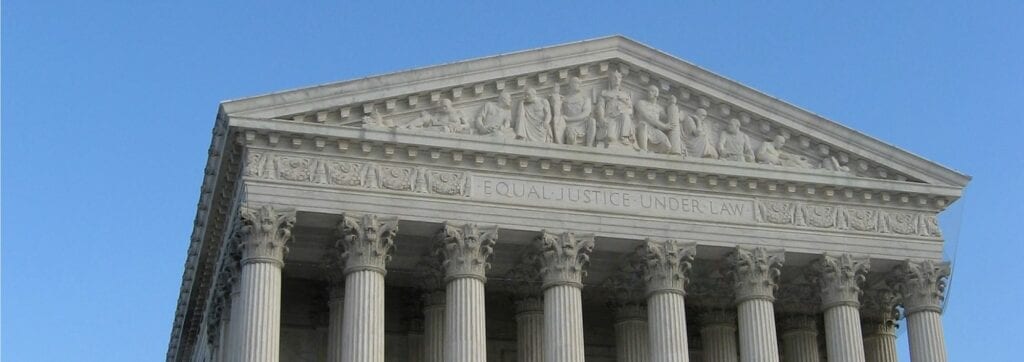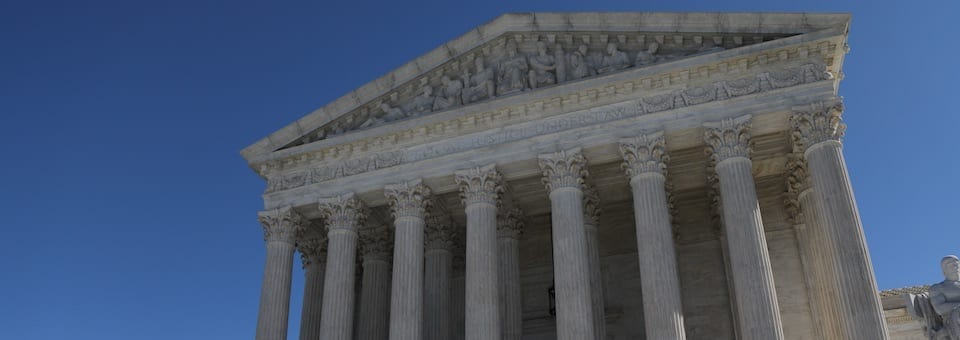Center for Reproductive Rights Opposes Confirmation of Judge Amy Coney Barrett
Judge Barrett has the most extreme anti-reproductive rights record since Judge Robert Bork.
Statement of Nancy Northup, President and CEO of the Center for Reproductive Rights
For only the second time since our founding in 1992, the Center for Reproductive Rights is opposing the confirmation of a U.S. Supreme Court nominee. Less than three weeks ago, the American people lost a champion for gender equality and reproductive rights with the passing of Justice Ruth Bader Ginsburg. On September 26, President Donald Trump nominated Judge Amy Coney Barrett to replace her.
The Senate majority is rushing a truncated confirmation hearing process to begin on October 12, barely two weeks after Judge Barrett’s nomination. While this is inadequate time for the Senators and public to fully appraise this nominee, her record in opposition to reproductive rights is clear and alarming. Based on the record of her judicial opinions, academic articles, speeches, and public statements, the Center for Reproductive Rights strongly opposes Judge Barrett’s confirmation to serve as an Associate Justice to the U.S. Supreme Court.
President Trump has made reversing Roe v. Wade a litmus test for his Supreme Court nominees. Judge Barrett’s record supports that test. From 2010-2016, she was a member in the Notre Dame Chapter of University Faculty for Life. In 2006, she was a signatory on a newspaper advertisement sponsored by St. Joseph County Right to Life. The ad called for an end to Roe v. Wade and Barrett specifically signed onto a statement that she opposes “abortion on demand” and defends “the right to life from fertilization,” an extreme legal position that has implications for contraception, abortion care and fertility treatments. In 2012 she signed onto an advocacy letter that called contraception and sterilization “gravely immoral and unjust” and wrongly characterized emergency contraception as “an abortion-inducing” drug. She subscribes to the judicial philosophy of originalism that rejects constitutional protections for abortion rights. Her writings are clear that she does not view Roe as a “super precedent” and the principle of stare decisis would not be a restraint to overturning Roe. In the two abortion rights cases that have come before her as a federal appellate judge, Judge Barrett joined opinions that suggest upending Supreme Court law on both the substantive right to abortion and the procedural safeguards that allow the right to be vindicated in court.
In sum, Judge Barrett’s approach to constitutional interpretation, opinions as a federal appellate judge, and vitriolic public advocacy disparaging contraception, opposing abortion, and defending “the right to life from fertilization” lay bare a deep disagreement with the established constitutional protections for reproductive rights. Indeed, Judge Barrett has the most extreme record in opposition to reproductive rights as any Supreme Court nominee since the rejected nomination of Judge Robert Bork over 30 years ago.
Moreover, Judge Barrett has criticized the Supreme Court’s decisions upholding key provisions of the Affordable Care Act (ACA), which has expanded reproductive health insurance coverage to millions, including affordable contraceptive and maternity care. This is especially troubling, as the Supreme Court will be hearing the next challenge to the ACA on November 10.
We do not make our decision to oppose Judge Barrett lightly. We win cases before a wide range of federal judges, who have been appointed by both Republican and Democratic presidents. As an organization that litigates cases in federal courts, including in the Supreme Court, we are rigorous about factual accuracy and careful legal analysis. We are a nonpartisan, nonprofit organization that does not support or oppose political parties or candidates.
The stakes of this nomination could not be higher. Since the election of President Trump, states have accelerated their decades-long campaign to end abortion services and there are dozens of cases heading toward the Supreme Court. Some are test cases to overturn Roe v. Wade or to render it meaningless by upholding laws that make abortion impossible to access. The Supreme Court’s vital role in protecting and upholding civil rights and liberties – including reproductive rights – cannot be compromised by a nominee fundamentally hostile to our constitutional rights.
Read the Center for Reproductive Rights’ full report of Judge Amy Coney Barrett’s record on reproductive rights here.



